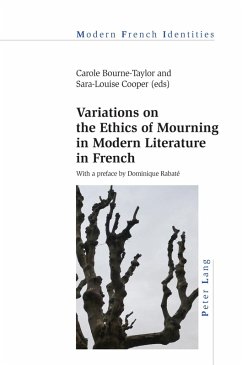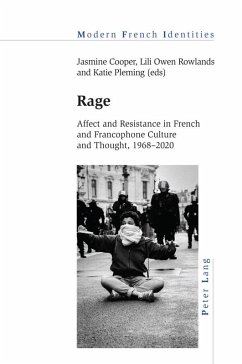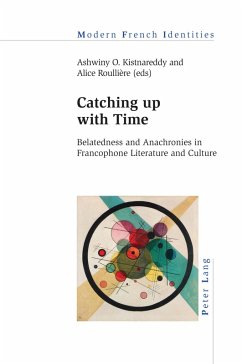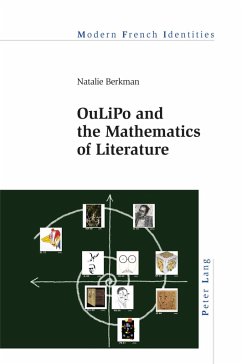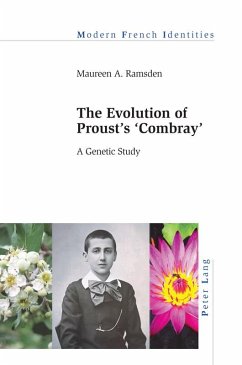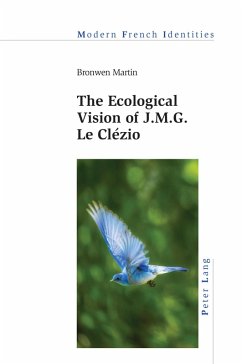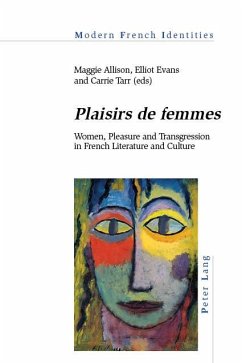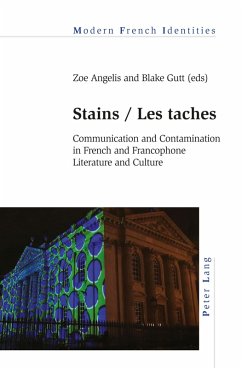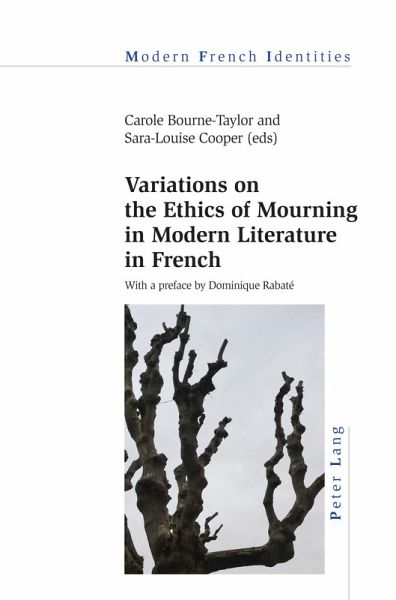
Variations on the Ethics of Mourning in Modern Literature in French (eBook, ePUB)
Versandkostenfrei!
Sofort per Download lieferbar
Statt: 61,80 €**
51,95 €
inkl. MwSt.
**Preis der gedruckten Ausgabe (Broschiertes Buch)
Alle Infos zum eBook verschenkenWeitere Ausgaben:

PAYBACK Punkte
26 °P sammeln!
«From Freud and psychoanalysis to Derrida and philosophy, the question of mourning has been central to a whole strain of modern thought, especially in France. This fascinating and illuminating collection of essays explores the question in a wide range of intellectual and literary settings, from the French Revolution down through the nineteenth and twentieth centuries. It is a tour de force.» (Christopher Prendergast FBA, King's College, Cambridge)«This volume compellingly explores the intersection of ethics and aesthetics, showing how literature can enrich our sense of the complexity of mou...
«From Freud and psychoanalysis to Derrida and philosophy, the question of mourning has been central to a whole strain of modern thought, especially in France. This fascinating and illuminating collection of essays explores the question in a wide range of intellectual and literary settings, from the French Revolution down through the nineteenth and twentieth centuries. It is a tour de force.» (Christopher Prendergast FBA, King's College, Cambridge)
«This volume compellingly explores the intersection of ethics and aesthetics, showing how literature can enrich our sense of the complexity of mourning, grief and loss. It provides a significant contribution to scholarship on mourning, understood as a never-ending process of relationality.» (Hanna Meretoja, University of Turku, Finland)
How does modern writing in French grapple with the present absence and absent presence of lost loved ones? How might it challenge and critique the relegation of certain deaths to the realm of the unmournable? What might this reveal about the role of the literary in the French and francophone world and shifting conceptions of the nation-state? Essays on texts from the Revolution to the present day explore these questions from a variety of perspectives, bringing out the ways in which mourning contests the boundaries between the personal and the historical, the aesthetic and the ethical, the self and the other, and ultimately reasserting its truly critical resonance.
«This volume compellingly explores the intersection of ethics and aesthetics, showing how literature can enrich our sense of the complexity of mourning, grief and loss. It provides a significant contribution to scholarship on mourning, understood as a never-ending process of relationality.» (Hanna Meretoja, University of Turku, Finland)
How does modern writing in French grapple with the present absence and absent presence of lost loved ones? How might it challenge and critique the relegation of certain deaths to the realm of the unmournable? What might this reveal about the role of the literary in the French and francophone world and shifting conceptions of the nation-state? Essays on texts from the Revolution to the present day explore these questions from a variety of perspectives, bringing out the ways in which mourning contests the boundaries between the personal and the historical, the aesthetic and the ethical, the self and the other, and ultimately reasserting its truly critical resonance.
Dieser Download kann aus rechtlichen Gründen nur mit Rechnungsadresse in A, D ausgeliefert werden.




